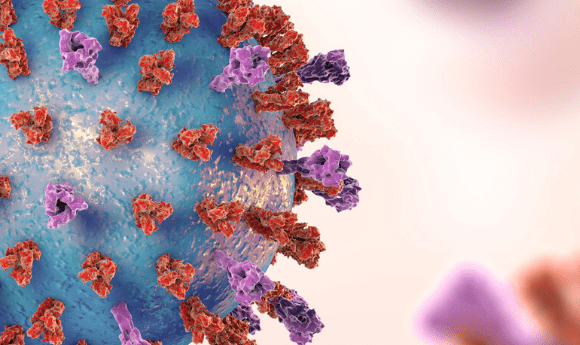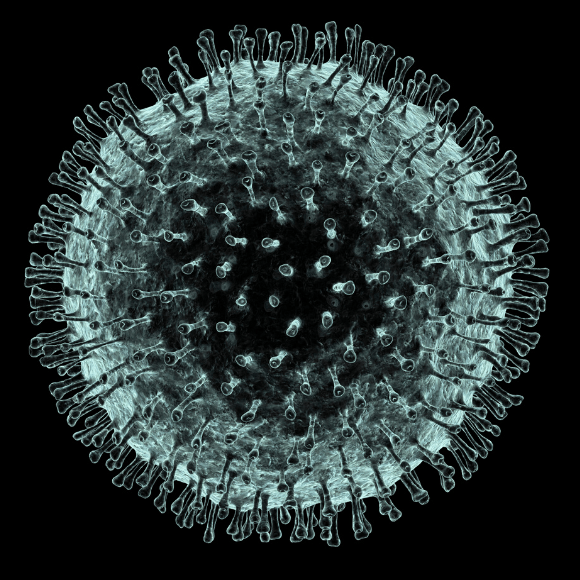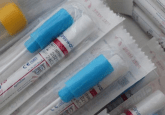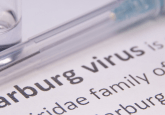Coronavirus: continued updates in basic research, vaccine development and testing

Researchers have delved further into our understanding of coronavirus, while the race to develop a vaccine continues.
New advances in coronavirus understanding
New research has put paid to some of the conspiracy theories surrounding coronavirus. A team comprising researchers from both the US, Australia and the UK has analyzed the receptor-binding domain (RBD) and the cleavage site present on spike proteins – a portion of the virus involved in cell penetration and thus of high interest to vaccine developers.
The team concluded that the mutations in the RBD protein, along with the virus backbone, must be a result of natural selection and not genetic engineering. They also propose two possible scenarios for the origins of the virus – through natural selection in a non-human host, or the jump of a non-pathogenic version of the virus into humans.
If you would like to keep up to date with our content on coronavirus, you can sign up for our site here, where you can subscribe to our newsletters for free!
High-intensity X-ray light and the Berlin synchrotron source BESSY II have been utilized to decode the 3D structure of the main protease of SARS-CoV-2, Mpro (aka 3CLpro). The team who performed this study, led by Rolf Hilgenfeld (University of Lübeck, Germany) has previously developed an inhibitor against the SARS virus and deciphered a Zika enzyme. The crystal structure of Mpro is currently free to access.
Meanwhile, a study has revealed how long the virus can survive on surfaces and work is underway to investigate the possibility of reinfection.
 Coronavirus: sorting the fact from the fiction
Coronavirus: sorting the fact from the fiction
Myths about the novel coronavirus, COVID-19, are spreading through the population faster than the disease itself, so what do you really need to know about the ongoing pandemic?
Coronavirus vaccine development
WHO has launched an unprecedented, global megatrial of four ‘most promising’ coronavirus treatments. The SOLIDARITY trial will seek to repurpose currently available drugs, evaluating the experimental antiviral remdesivir, the malaria drugs chloroquine and hydroxychloroquine, a combination of the HIV drugs lopinavir and ritonavir, and lopinavir—ritonavir plus interferon beta.
The trial will enrol anyone with confirmed COVID-19, with physicians inputting patient data plus underlying conditions that could affect the disease into the WHO website, along with a scanned consent form. The website will then randomize the patient to one of the drugs the hospital is able to provide, or local standard of care. Physicians will then record the date the patient leaves the hospital or dies, the duration of their hospital stay, and whether they required oxygen or ventilation.
While not double-blind, WHO believes there is a need to balance scientific rigour with speed in this case.
INSERM is also coordinating an add-on trial in Europe, Discovery, testing the same drugs, although without chloroquine. Meanwhile, the US FDA (MD, USA) has authorized a trial (but not the drug itself!) of chloroquine, following an in-press French study suggesting efficacy in a small group of patients.
Researchers at Oxford University (UK) are intending to start animal trials imminently, and human trials next month, of a harmless virus intended to ‘smuggle’ coronavirus DNA into human cells and thus stimulate immunity. The vaccine, ChAdOx1, demonstrated promise for MERS and joins other experimental frontrunners currently in development across the globe. The others are being developed by Moderna (MA, USA), which has recently given its first shot to a human; Inovio (PA, USA), which is soon to start trials; and CureVac (Tübingen, Germany).
Genentech (CA, USA) has announced its drug Actemra® (tocilizumab) will begin a Phase III trial in April, following expediting by the US FDA.
In negative news, the randomized—controlled trial of lopinavir–ritonavir has reported no benefit, although the authors noted that it might prove useful in a larger scale trial, or in combination with other antivirals, hence its inclusion in the WHO megatrial.
Coronavirus testing
The race to provide faster and scalable testing continues. One effort involves a method colorfully termed Mango, which has been developed on the back of a call from the Canadian Institutes of Health Research. Mango detects RNA molecules within living cells and comprises an RNA Mango aptamer that binds to a fluorescent dye.
Testing brings with it other problems, including quarantine issues. Sight Diagnostics (Tel Aviv, Israel) has announced that it has provided its OLO blood analyzer to Israel’s flagship government-run hospital, Sheba Tel Hashomer, to allow complete blood count analysis of infected samples, with minimal contamination.





